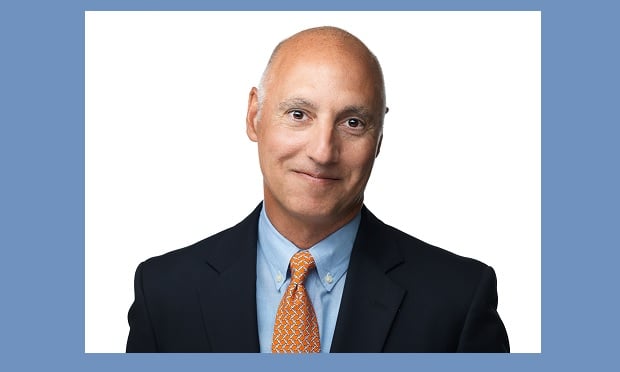While the captive-insurance industry has been largely flat overthe past few years, Bermuda in 2011 is seeing an upward trend.
|On the new-business side, “we're pretty busy, which is great,”says Jill Husbands, executive committee member of the BermudaInsurance Development Council and a managing director and officehead of Marsh Management Services (Bermuda) Ltd.
| “As with most captive domiciles,the last few years have been slow. But certainly over the lastthree months, we have seen an uptick in the number of new inquiriesand the number of new incorporations,” Husbands says. “I certainlyhope this year continues as it started out. Marsh is seeingincreased interest in captives, which is exciting for us.”
“As with most captive domiciles,the last few years have been slow. But certainly over the lastthree months, we have seen an uptick in the number of new inquiriesand the number of new incorporations,” Husbands says. “I certainlyhope this year continues as it started out. Marsh is seeingincreased interest in captives, which is exciting for us.”
As further grounds for her growing enthusiasm, Husbands says sheis seeing clients now who have had a captive on their agenda “formany years, but because of the economic situation, forming onewasn't a priority. Now it's back on their radar.”
|The sixth annual Bermuda Captive Conference, being held June5-8, has also generated more interest with more exhibitors anddelegates signed up to attend, Husbands adds. “Again, I thinkthat's a very good sign that business is picking up. The conferencewill be larger than last year, for sure, but whether we'll get backto 2008, our largest year, we'll see.”
|CELL CAPTIVES
|Raymond J. Rocchio Jr., vice president of the specialty-marketsdivision with PMA Cos. in Blue Bell, Pa., says segregated-cellcaptives continue to be popular in Bermuda, as they are in somedomiciles in the United States.
|Use of cell captives has helped stimulate middle-market growthin Bermuda, he says, adding that the fact that the Internal RevenueService has provided more clarity domestically regarding thesecurity of funds in relation to other cells has helped formationin Bermuda as well.
|He notes that while Bermuda may be regretting its decision yearsago not to actively pursue health-care captives—contributing totheir significant growth in Cayman—“if health care takes off,Bermuda could have a place in that.”
|He also says that while the growth of individual captives hasbeen slow in Bermuda, organizations are “utilizing the captivesthey have,” leading to more premium growth in Bermuda.
|GETTING ENERGIZED/SOLVENCY II
|As for trends, Husbands points to the oil and gas arenas,“because of the slight hardening they have seen as a result of whathappened in the Gulf of Mexico.”
|She also is seeing more interest in cell captives from smallercompanies.
|On the regulatory side, she says, “it's definitely not quiet,”as Bermuda has been working hard to gain equivalency with SolvencyII.
|She explains, “We're looking to the European Union to considerour regulation here equivalent to the regulation they have. Theywill review the regulation we have in place.”
|At the end of June, she says, “we expect a visit will be takingplace to assess Bermuda. I believe in our regulation here. We havea very strong regulatory environment that is friendly to business,so I'm hopeful.”
|In preparation, there have been some regulatory changes inBermuda that she says are “common sense,” such as one to curtailmoney laundering. While many of the regulations are already bestpractices for most companies, she notes, they strengthen Bermuda asa domicile.
|For instance, “we've introduced a code of conduct for insurers.”The code requires that the company is “run in a legal and ethicalmanner, that the board of directors knows what is going on in thecompany, and that it meets and makes ethical decisions,” Husbandsays.
|“It's basically putting best practices in writing,” sheexplains. “Most of our clients have had this in place and practiceit, but it's just putting it in writing to make sure those codesare adhered to.”
|Like other domiciles, Bermuda has seen some relocation ofcaptives both to and away from the domicile.
|“It's fair to say that our clients have a very large choice ofdomiciles now, and when there's more choice, you see people goingto lots of different places. That's the case now,” Husbandssays.
|She notes, “If a large corporation is domiciled in a [U.S.]state, and that state has captive legislation, they would mostlikely consider it.”
Want to continue reading?
Become a Free PropertyCasualty360 Digital Reader
Your access to unlimited PropertyCasualty360 content isn’t changing.
Once you are an ALM digital member, you’ll receive:
- All PropertyCasualty360.com news coverage, best practices, and in-depth analysis.
- Educational webcasts, resources from industry leaders, and informative newsletters.
- Other award-winning websites including BenefitsPRO.com and ThinkAdvisor.com.
Already have an account? Sign In
© 2024 ALM Global, LLC, All Rights Reserved. Request academic re-use from www.copyright.com. All other uses, submit a request to [email protected]. For more information visit Asset & Logo Licensing.








